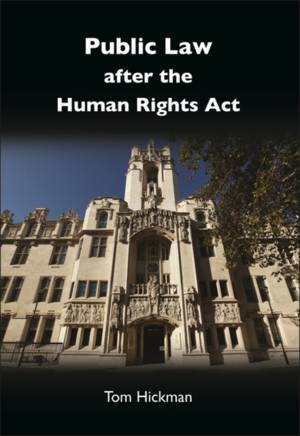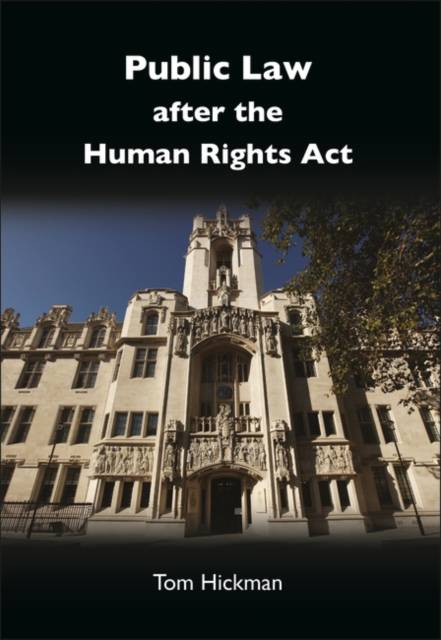
- Retrait gratuit dans votre magasin Club
- 7.000.000 titres dans notre catalogue
- Payer en toute sécurité
- Toujours un magasin près de chez vous
- Retrait gratuit dans votre magasin Club
- 7.000.0000 titres dans notre catalogue
- Payer en toute sécurité
- Toujours un magasin près de chez vous
Description
It is remarkable that 10 years after the Human Rights Act came into effect, and with further reform possible, there are still no clear answers to basic questions about the relationship between the Human Rights Act, human rights principles and the common law. Such basic questions include: what is the Human Rights Act? What is the relationship between human rights principles and common law doctrines in public law? Do traditional public law principles need to be replaced? How has the Human Rights Act altered the constitutional relationship between the courts, government and Parliament in the UK? Public Law After the Human Rights Act proposes answers to these questions. Unlike other books on the Human Rights Act, the book looks beyond the Human Rights Act itself to its effect on public law as a whole. The book articulates in novel ways the relationship between the Act and administrative and constitutional law. It suggests that the Human Rights Act has built on the common law constitution. The discussion focuses on core topics in modern public law, including, the constitutional status of the Human Rights Act; the relationship between human rights and the common law; the Human Rights Act's effect on central doctrines of public law such as reasonableness, proportionality and process review; the structure of public law in the human rights era; derogation and emergencies; and the right of access to a court.
Spécifications
Parties prenantes
- Auteur(s) :
- Editeur:
Contenu
- Nombre de pages :
- 360
- Langue:
- Anglais
Caractéristiques
- EAN:
- 9781841139692
- Date de parution :
- 20-05-10
- Format:
- Livre broché
- Format numérique:
- Trade paperback (VS)
- Dimensions :
- 155 mm x 231 mm
- Poids :
- 612 g

Les avis
Nous publions uniquement les avis qui respectent les conditions requises. Consultez nos conditions pour les avis.






